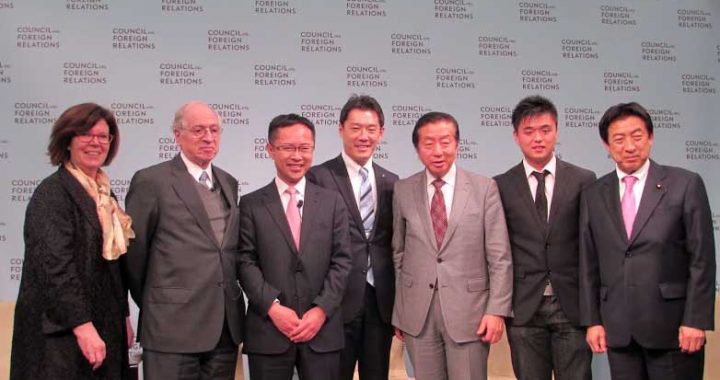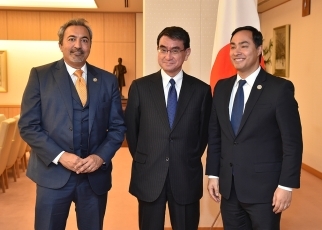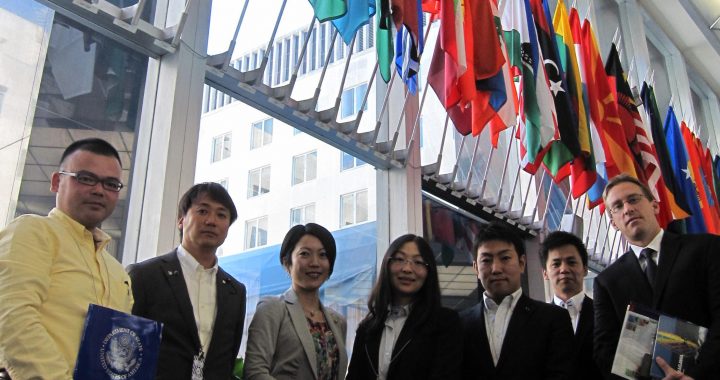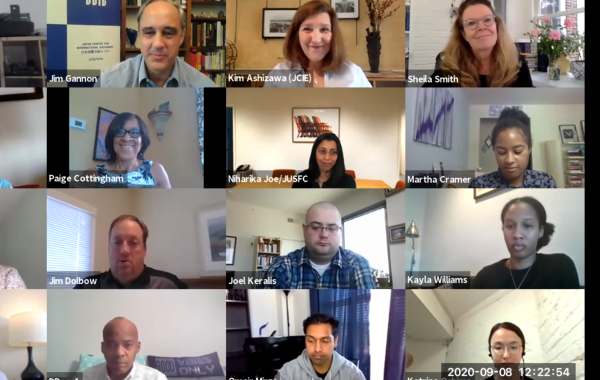Tadashi Yamamoto Memorial Seminar

Throughout his career, JCIE’s founder Tadashi Yamamoto made a special effort to engage both senior and emerging leaders from politics, government, civil society, and other walks of life in the type of substantive policy dialogue that builds the foundations for greater international cooperation.
US-Japan Parliamentary Exchange

The US-Japan Parliamentary Exchange Program brings members of the US Congress and Japanese Diet to one another’s countries for a series of intensive dialogues with leaders from a broad range of fields. Participants in the US-Japan Parliamentary Exchange Program have risen to influential positions in their respective countries with an enhanced understanding of the US-Japan relationship.
US-Japan Young Political Leaders Exchange

In 1973, JCIE and the American Council of Young Political Leaders (ACYPL) jointly launched the US-Japan Young Political Leaders Exchange Program, an annual bilateral exchange program designed to expose young leaders of each country to the politics and policymaking processes of the other country and to enhance their understanding of US-Japan relations.
A50 Caravan

In commemoration of the 50th anniversary of the signing of the San Francisco Peace Treaty, which formally brought World War II to a close, JCIE’s offices in Tokyo and New York, along with the National Association of Japan-America Societies (NAJAS) in Washington DC, organized an A50 Caravan. The Caravan featured 15 teams, each consisting of three Japanese participants who represented different generations and a broad spectrum of professions and backgrounds.
Revitalizing Regional Exchanges between the United States and Japan: Examples of Sister-City Exchanges

With the goal of revitalizing sister-city exchanges between Japan and the United States, this project sought to identify ways to overcome the issues that have led to the stagnation of many of these exchanges and to explore appropriate models for sister-city exchange in the twenty-first century.
An Enhanced Agenda for US-Japan Partnership

JCIE and the Japan Foundation Center for Global Partnership undertook a study to explore how bilateral cooperation can be deepened in order to face common challenges, strengthen regional and global stability and prosperity, and, ultimately, make the US-Japan alliance more robust and versatile in light of wide-ranging developments that had begun to reshape Asia at the start of the 20th century.
China-Japan-US Research and Dialogue Project

Based on the premise that the security and prosperity of Asia Pacific is largely contingent upon cooperation among China, Japan, and the United States, JCIE launched a long-term policy research and dialogue project to explore the challenges that lie ahead. The project combines workshops involving experts with study groups of emerging intellectual leaders from the three countries.
Development of Trilateral Cooperation in Global Governance among East Asia, North America, and Europe

Beginning in 2006, this APAP research program focused on the question of the “Development of Trilateral Cooperation among East Asia, North America, and Europe” and how the creation of a functional trilateral structure might be created to foster the stable development of global governance. As a result of the project, East Asia at a Crossroads was published in 2008.
Japan 101 Online Course: Understanding US-Japan Relations

An online course for Congressional staff to bring them up-to-date on the US-Japan relationship and its importance in the US’s approach to Asia.
Global ThinkNet Fellows | The Japan-US Alliance: New Challenges in the 21st Century

A group of six young scholars examined the elements that might affect the Japan-US alliance in coming decades, including domestic public opinion and politics, tensions between other countries, and cultural outlook. Their final papers were published by JCIE as an edited volume, Japan-US Alliance: New Challenges for the 21st Century.
